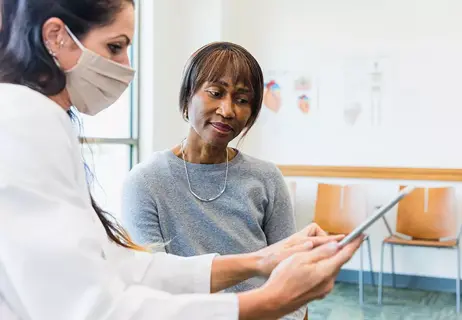Fibroids, also known as uterine leiomyomas, are non-cancerous growths that develop in or on the uterus. While they are generally benign, fibroids can cause a range of symptoms that significantly impact a woman’s quality of life. This is where specialized fibroid clinics come into play, offering targeted and effective treatment options tailored to individual needs.
What Are Fibroids?
Fibroids are composed of muscle and fibrous tissue and vary in size, number, and location within the uterus. They can be as small as a pea or as large as a melon. While many women with fibroids experience no symptoms, others may suffer from heavy menstrual bleeding, pelvic pain, frequent urination, and reproductive issues.
The Importance of Specialized Fibroid Clinics
Specialized fibroid clinics focus exclusively on the diagnosis and treatment of fibroids, offering several advantages over general gynecological practices:
- Expertise and Experience: Physicians at fibroid clinics typically have extensive experience and specialized training in managing fibroids. This expertise allows them to offer the most advanced and effective treatment options.
- Comprehensive Diagnostics: Fibroid clinics often provide state-of-the-art diagnostic tools, such as transvaginal ultrasound, MRI, and hysteroscopy, to accurately assess the size, number, and location of fibroids.
- Personalized Treatment Plans: Recognizing that each patient’s situation is unique, fibroid clinics develop individualized treatment plans that consider factors such as the patient’s symptoms, age, reproductive goals, and overall health.
Treatment Options Available at Fibroid Clinics
A range of fibroid treatment options is available at fibroid clinics, from conservative management to surgical intervention. These options include:
- Medication: For women with mild symptoms, medications such as hormonal treatments and nonsteroidal anti-inflammatory drugs (NSAIDs) can help manage symptoms.
- Minimally Invasive Procedures: Procedures like uterine artery embolization (UAE) and radiofrequency ablation (RFA) are minimally invasive options that can shrink fibroids and alleviate symptoms without the need for major surgery.
- Surgical Options: For more severe cases, surgical interventions such as myomectomy (removal of fibroids) or hysterectomy (removal of the uterus) may be necessary. These surgeries can often be performed using minimally invasive techniques, such as laparoscopy or robotic surgery, to reduce recovery time and improve outcomes.
The Patient Experience at a Fibroid Clinic
At a specialized fibroid clinic, the patient experience is centered around compassionate, patient-focused care. From the initial consultation to post-treatment follow-up, the clinic’s team works closely with patients to ensure they receive the best possible care and support.
- Initial Consultation: During the first visit, patients undergo a thorough evaluation, including a detailed medical history, physical examination, and necessary diagnostic tests.
- Treatment Planning: Based on the diagnostic findings, the physician discusses the available treatment options and collaborates with the patient to develop a personalized treatment plan.
- Follow-Up Care: After treatment, patients receive ongoing follow-up care to monitor their recovery and address any concerns or complications that may arise.
Conclusion
Fibroid clinics play a crucial role in the management of uterine fibroids, offering specialized care and advanced treatment options that significantly improve patient outcomes. By focusing exclusively on fibroids, these clinics provide a level of expertise and personalized care that is essential for effectively managing this common condition. If you or someone you know is experiencing symptoms of fibroids, consider seeking care at a specialized fibroid clinic to explore the best treatment options available.










